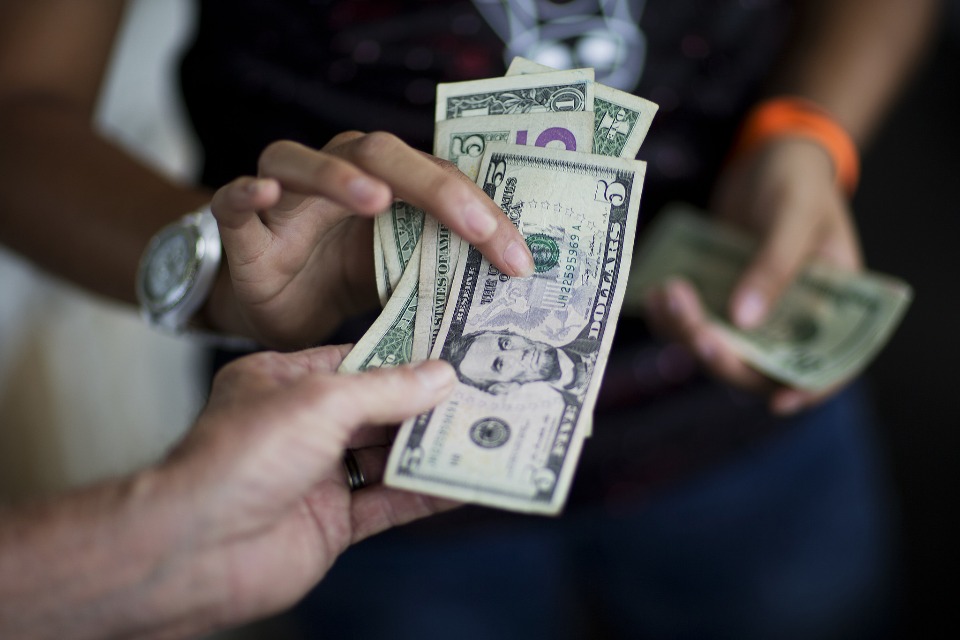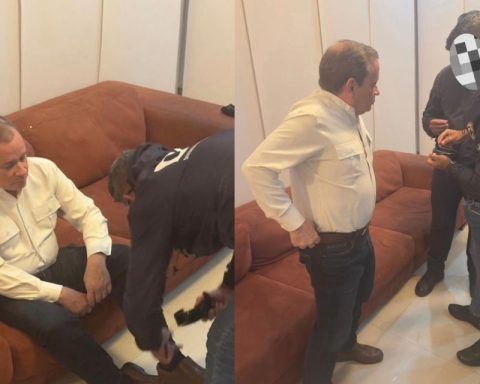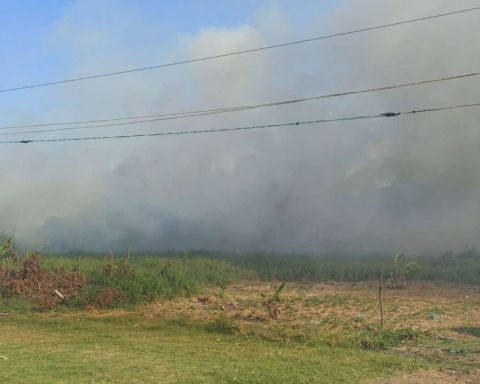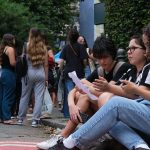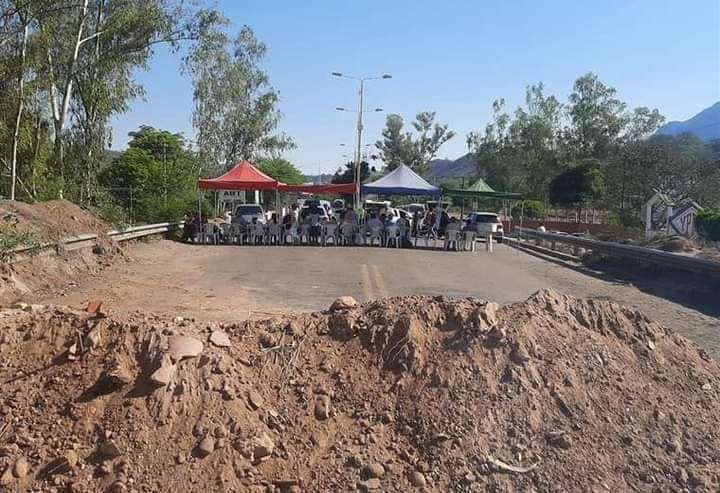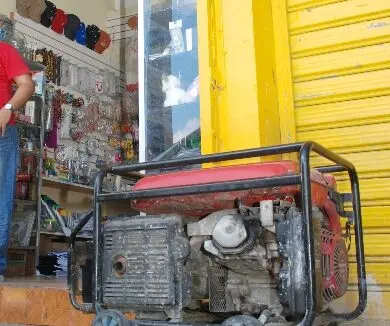Economists say that one of the main reasons for the rise in the exchange rate in recent weeks is the same one they have been warning about for months: the monetary policy of the Central Bank of Venezuela, which maintains an official market with a certain stability thanks to an artificial measure, such as the injection of foreign currency, which has tripled in recent months. However, in the last month, the pressure on the market has been compounded by the country’s political instability following the elections on July 28.
In the last week, Venezuelans have once again looked at the dollar quotes on the unofficial market. A scenario that is not unknown to a country that in the last ten years experienced one of its worst economic crises. The parallel dollar has skyrocketed: between August 20 and 28 alone it rose 5.90% and surpassed a new high on Thursday 29, closing at 44.17 bolivars.
Economists consulted indicate that one of the core reasons for the rise of the dollar is the same one they have warned about for months: the monetary policy of the Central Bank of Venezuela (BCV). But in the last month it has also The country’s political instability has been added, after the presidential elections on July 28.
For Ingerzon Freites, professor of economic policy at the Central University of Venezuela (UCV), one of the reasons why the exchange rate in the parallel market has shown a sustained rise in recent weeks is associated with a greater demand for dollars. and an offer on the official exchange market that fails to meet that need.
«Although the BCV has had a significant intervention, in general terms, in the last two years, this has not fully satisfied the demand and this demand could be driven mainly by the oil sector. Let us remember that there is a reactivation of this sector (with the license granted by the US to Chevron) and all the associated subsectors are demanding a greater amount of dollars to acquire materials, goods and pay salaries, this could be a pressure», explains the economist.
Unlike the parallel market, the official dollar has remained almost unchanged over the past week. However, In one year the currency increased by 13.11%, According to data reported daily by the issuing body, on Wednesday, August 28, the BCV exchange rate closed at 36.59 bolivars per dollar.
That the exchange rate in the official market remains at this price depends on a fragile monetary policy according to specialists. In recent years, the BCV has injected more and more foreign currency into the exchange market, however, These measures have not been sufficient.
For example, economist José Manuel Puente, a professor at the Institute of Advanced Studies in Administration (IESA), believes that the first thing the Central Bank should do to reverse this trend in the market is to make the price of the currency more honest. “The equilibrium exchange rate is not 36 bolivars per dollar,” he says in an interview with SuchWhich. But he also adds that the institution applies “an incoherent economic policy”.
Puente points out that despite the BCV’s efforts to inject more and more foreign currency into the exchange market, structural problems remain. He takes as an example the behavior of BCV placements in the banks’ exchange desks in recent months: in March it placed $210 million, while in April it was $329 million and in May it was $332 million.
*Read also: Parallel dollar increased 4.21% in the last week and reaches Bs 43.79
By June the intervention continued to grow with $438 million and in July in more than $590 millionaccording to the economist’s estimates. On this, he explains that the Government has had to liquidate increasingly larger volumes, as the market naturally reacts to buying dollars on the official market at a “cheaper” price.
Freites, for his part, points out that the measures of the BCV They are not aligned with a comprehensive economic program in accordance with the policies of the Ministries of Finance and Petroleum, an old criticism made by academics, therefore, it points out that from the logical point of view of economic theory, rather than continuing to intervene, the issuing entity must adopt a plan that includes the rest of the State organs and thus stimulate production.
“This production could have an impact on increased consumption through an increase in wages, which is what would truly bring stability to the exchange rate. The current stability of the dollar is artificial, due to the injection of foreign currency that the Government has been doing for some time now,” says Freites.
Despite attempts to retain the official dollar price, the bolivar still devalued in the last year, during that period the currency depreciated 11.61%, going from Bs 32.34 in August 2023 to Bs 36.59 at the close of August 28 of this year.
The gap between the official and parallel rates is around 20%, for specialists “this is a distortion” harmful to the economy, which could lead to an acceleration of inflation and also to the risk of the economy entering recession again, a cycle from which it emerged in 2021 when the Gross Domestic Product stopped its decline.
According to Puente, if the current economic measures are not reversed, they will produce a significant devaluation of the bolivar, which translates into a recessionary impact for the economy.
According to economic firms such as FocusEconomics, the growth projections for the Venezuelan economy until August of this year were 4.5%. The authorities, on the other hand, claim that the economy will grow by 8%.
The market soars a month after #28Jul
Following the July 28 elections, the National Electoral Council (CNE) delivered partial results that gave Nicolás Maduro a victory for a third term. To date, the institution has not published the minutes of the vote count table by table, which has led to protests throughout the country against the results. The crisis intensified after dozens of countries, as well as the European Union, questioned the veracity of the electoral body’s results.
The Venezuelan population, the international community, and two organizations that observed the elections, the Carter Center and the UN Panel of Experts, continue to demand and press for an impartial verification process that will allow the political crisis to be resolved.
The conflict of the last few weeks has had an impact on economic dynamics. For IESA professor José Manuel Puente, for example, “There is no way to maintain economic stability without a minimum of political stability.”
He adds that “Venezuela is in a phase of political crisis, with a president who is not yet recognized by a large part of the international community and that generates doubts about the government and also about its economic policy. These fears are reflected in the nervousness of the exchange market.”
The pressure on the unofficial market began to increase in the last week, For Ingerzon Freites, there is a reason for this, and it is that the reaction of economic agents, including people and families, is not usually so fast. “Events begin to happen and then there is a reaction to that, in this case, people are already worried about political instability, obviously this is a factor that will influence the economy,” she says.
According to the specialist, it is natural for people to seek to protect their income by purchasing foreign currency. However, he points out that in the event of a disproportionate demand, the market does not have enough dollars to satisfy it.
“There is also pressure from the instability of the economy itself, where expectations are that the official exchange rate will increase, then people want to protect their money in some international currency, in this case the dollar,” Freites said.
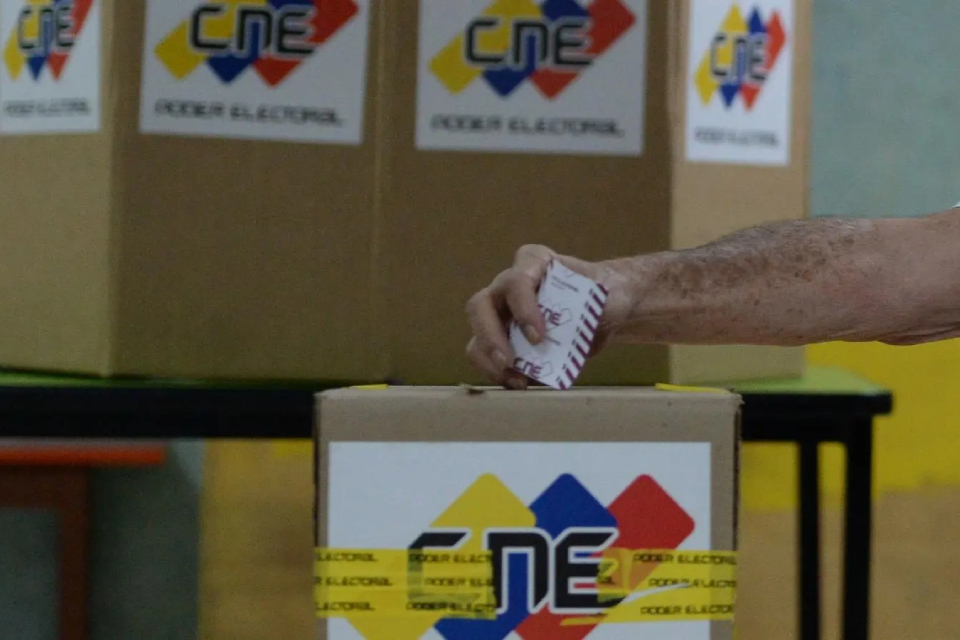
Consequences and distortions in the market
Specialists explain that the gap between the official and parallel dollar generates an arbitrage between both markets, which tends to influence speculation. In this sense, they indicate that if this gap, which at the end of August was 20%, increases the demand for dollars even more and also the prices of goods and services increase, which leads to a more accentuated inflation process that would affect Venezuelan households.
Economists also point out that the equilibrium exchange rate, that is, the real price that the currency should have in the official market, should be above what the market indicates today: they estimate that it is around 60 bolivars per dollar.
José Manuel Puente considers that “unfortunately” The equilibrium exchange rate could be close to double the current price. “We don’t know when the government will make the political decision to do so, but the exchange rate is currently very cheap.” He argues that the trend is that the exchange rate in the unofficial market could continue to push upwards unless the Government obtains large resources to liquidate larger volumes of foreign currency and, thus, be able to influence the exchange market.
Ingerzon Freites adds that an increase in the prices of goods and services would also have an impact on lower consumption by the population.
Post Views: 161
